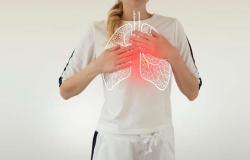
The government proposed, together with the states, a reduction in the number of products for the national basic basket, which will be exempt from future consumption taxes (CBS, the federal government’s value-added tax, and the IBS of states and municipalities ).
“Consistently with this guideline, in the Project, one of the guiding principles for the selection of foods to benefit from favored rates was the prioritization of fresh or minimally processed foods and culinary ingredients, following recommendations for healthy and nutritionally adequate eating of the Food Guide for the Brazilian Population, from the Ministry of Health”, says the proposal from the government and the states.
A second guideline of the proposal, according to the text, was the prioritization of foods mostly consumed by the poorest, with the purpose of ensuring that the maximum possible tax benefit is appropriated by low-income families.
“To support the selection of these foods, an indicator was constructed that measures the relationship between how much each food weighs in the food budget of low-income families and how much it weighs in the food budget of other families, based on information from the Food Survey. IBGE Family Budgets”, informs the document.
“The third and last of the principles that guided the selection of foods was to ensure that the foods in the current PIS/Cofins Basic Basket have their taxation reduced, with the exception of those whose consumption is very concentrated among the richest”, says the text.
Currently, according to a report by the Public Policy Monitoring and Assessment Committee (CMAP), formed by several ministries, carried out in 2021, the Current rules include the exemption of 745 different foods covered by federal tax exemption laws.
A The current basic food basket contains items that are not necessarily consumed by the low-income population, but which are exempt from federal taxes. Such as:
- salmon;
- cod;
- cheeses like ricotta and provolone;
- duck and goose liver (“foie gras”);
- coconut oil;
- mushrooms and truffles;
- walnuts, macadamia and dates.
New national basic basket
The zero-rate basic basket, proposed by the government, has fewer products. Are they:
- Rice
- Pasteurized or industrialized fluid milk, in the form of ultra-pasteurized, powdered, whole, semi-skimmed or skimmed milk; and infant formulas defined by specific legal provision;
- Butter
- Margarine
- Beans
- Roots and tubers
- Coconuts
- Coffee
- Soy oil
- Cassava flour
- Flour, groats and meal of maize, and crushed or flaked grains of maize
- Wheat flour
- Sugar
- Pasta
- Regular bread (containing only cereal flour, yeast, water and salt)
60% discount on tax amounts
- Beef, pork, lamb, goat and poultry meat and products of animal origin (except Foies gras) and edible offal from sheep and goats
- Fish and fish meat (except salmonids, tuna; cod, haddock, saithe and roe and other by-products)
- Crustaceans (except lobsters and crayfish)
- Fermented milk, beverages and dairy compounds;
- Cheeses such as mozzarella, minas, dish, coalho cheese, ricotta, cottage cheese, provolone cheese, parmesan cheese, unmatured fresh cheese and black cheese;
- natural honey
- Herb tea
- Flour, groats and semolina, of cereals; crushed or flaked grains of cereals
- Tapioca and its substitutes
- Pasta
- iodized table salt
- Natural fruit or vegetable juices without added sugar or other sweeteners and without preservatives
- Fruit pulp without added sugar or other sweeteners and without preservatives
Supermarket Association
The entity released a proposal, at the beginning of this month, which provides for a tax exemption for a wide range of products — around 600 items (common Mercosur nomenclatures – NCMs).
Among the zero-tax products, Abras proposed that foie gras (fatty duck or goose liver), cod, truffles (underground fungi, an expensive ingredient used in exquisite dishes and sweets) and lobsters be included.
- By relieving the basic food basket, the government gives up revenue. This worsens the gap in public accounts – which totaled R$230 billion last year. The government seeks to eliminate the deficit this year.
- According to an estimate by the Federal Revenue Service, the Exemption from the basic food basket will cost R$39 billion to the public coffers in 2024.
- In addition to the tax waiver, that is, the amount that the government fails to collect, another discussion is the impact of the basic basket on the size of the tax that will be charged on the consumption of other products — the so-called general rate.
- Estimated, for now, at around 27.5% – among the highest in the world -, the general rate of future VATs (consumption taxes) could be further pressured upwards if the list of products included in the basic basket with a tax rate zero is too long.
- Some studies indicate that the use of “cashback” (refund of taxes paid on the basic basket) would be a less costly and more effective alternative to benefit the poorest section of the populationfavoring income redistribution.
Tax reform regulation
However, several sensitive topics were postponed until 2024, as the text of the PEC indicates the need to regulate some matters through bills. This is what the government began sending to the Legislature this week.
This first tax reform regulatory project has around 300 pages, 500 articles and several annexes. In addition, it also has eight pages dealing only with the repeal of current rules that will be abolished in the future.
In addition to this project, he said, there will be two others:
- one on the transition in revenue distribution (to states and municipalities) and with issues related to administrative litigation;
- one to deal with transfers of resources to regional development funds and compensation for state losses.
The Treasury’s schedule predicts that the regulation will be carried out between 2024 and 2025. With the end of this phase, the transition from current taxes to the Value Added Tax (VAT) model could begin in 2026 — with no charge cumulative.
According to the proposed amendment to the Constitution (PEC), five taxes will be replaced by two Value Added Taxes (VATs) — with single legislation, one managed by the Union and the other with shared management between states and municipalities:
▶️ Contribution on Goods and Services (CBS): with federal management, it will unify IPI, PIS and Cofins;
▶️ Tax on Goods and Services (IBS): with shared management by states and municipalities, it will unify ICMS (state) and ISS (municipal).
▶️ In addition to the federal CBS and the state and municipal IBS, a selective tax (on products harmful to health) and an IPI will be charged on products produced by the Manaus Free Trade Zone — but outside the region with tax benefits.
The final tax rate, however, will only be known in the coming years — after a testing period has been carried out to “calibrate” the value — necessary to maintain the current tax burden.
Impact on the economy, added value and charging at destination
The government hopes that, with tax simplification, there will be an increase in productivity and, consequently, a reduction in costs for consumers and producers, stimulating the economy.
- With the implementation of VAT, taxes would become non-cumulative. This means that, throughout the production chain, taxes would be paid only once by all participants in the process.
- Currently, each stage of the chain pays taxes individually, and they accumulate until the final consumer.
- With VAT, companies could deduct, when collecting tax, the amount previously paid in the production chain. They would only collect the tax on the value added to the final product.
- Another change is that the consumption tax (VAT) would be charged at the “destination”, that is, at the place where the products are consumed, and no longer where they are produced. There is a transition period of around 50 years from charging at origin to destination.
- This would help to combat the so-called “fiscal war”, the name given to the dispute between states so that companies can set up shop in their territories. To this end, they intensify the granting of tax benefits.
Tags: Tax reform government proposes basic basket tax exemption products Economy
--




